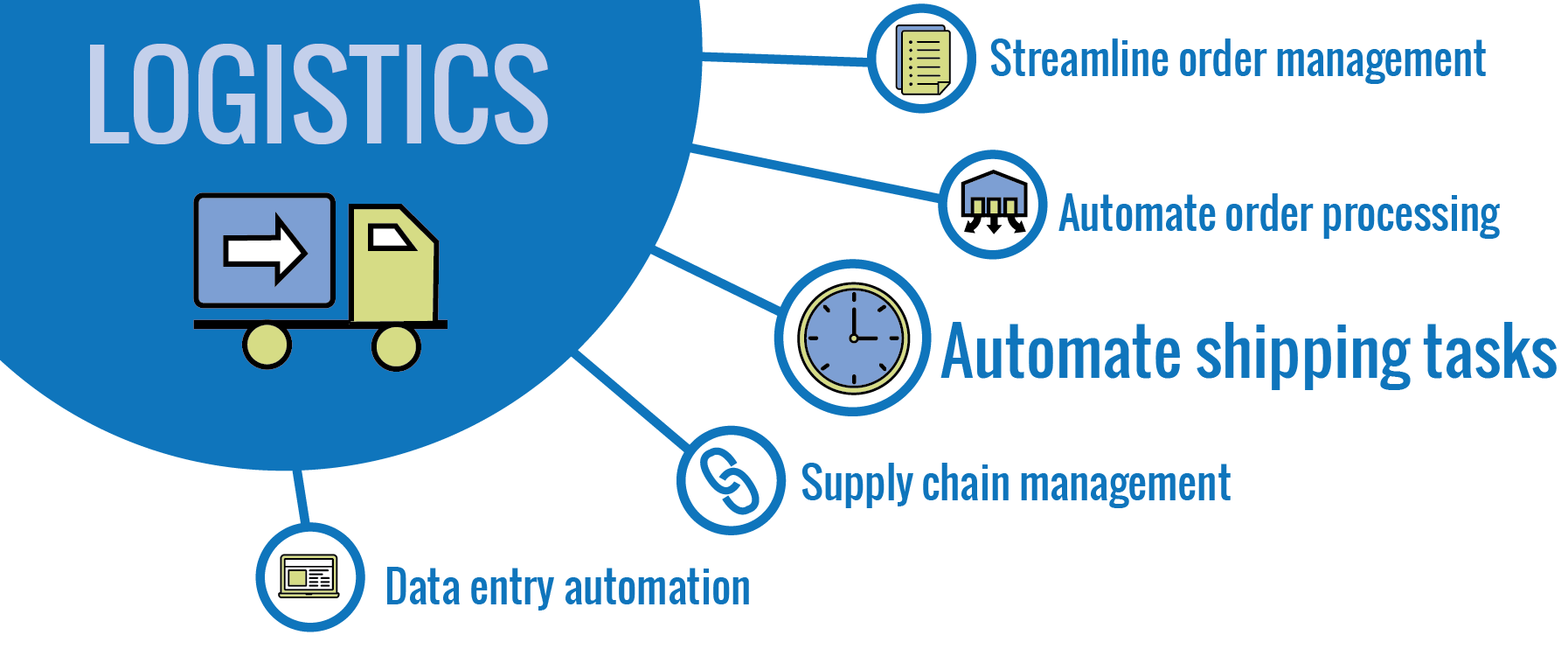How Coach Bot Helps in the Logistics Industry

According to a white paper by the World Economic Forum and Accenture, the digital transformation in the field of logistics is expected to result in $1.5 trillion value at stake by 2025. And this is no small feat, if we consider that the transportation and logistics industry is currently marred by a significant amount of ineffective behaviours, such as half the trucks traveling empty on the way back after making a delivery, which have a negative effect on industrial productivity.

Streamline Order Management
![]() Perhaps the best place for a logistics company to start automation is in managing orders, because so much of the process involves repetitive manual tasks, such load matching with transport availability. RPA bots can integrate data from multiple systems, like organizational management modules, Excel spreadsheets, and web portals.
Perhaps the best place for a logistics company to start automation is in managing orders, because so much of the process involves repetitive manual tasks, such load matching with transport availability. RPA bots can integrate data from multiple systems, like organizational management modules, Excel spreadsheets, and web portals.
Automate Order Processing
![]() Some of the challenges in this often-manual process are data-entry errors and a waste of resources due to delays in processing. RPA bots can take care of those things. They can enter customer order information in the system, process payment, send out an email confirmation, and process payment, all without ever making an error. And the bots work 24-hours per day, so orders are processed real-time, not just when a worker is monitoring the process. The other great thing about a digital workforce? They never take PTO or even holidays! Business continues 24-7 when digital bots are involved.
Some of the challenges in this often-manual process are data-entry errors and a waste of resources due to delays in processing. RPA bots can take care of those things. They can enter customer order information in the system, process payment, send out an email confirmation, and process payment, all without ever making an error. And the bots work 24-hours per day, so orders are processed real-time, not just when a worker is monitoring the process. The other great thing about a digital workforce? They never take PTO or even holidays! Business continues 24-7 when digital bots are involved.
Automate Shipping Tasks
![]() Using RPA, logistics companies can automate manual shipping tasks, starting with the initial pick-up request and moving all the way through reporting on shipment status. “Extract shipment details from incoming emails, log jobs in your scheduling systems, and provide pick-up times in customer/carrier portals, all with robots,” says AutomationEdge.
Using RPA, logistics companies can automate manual shipping tasks, starting with the initial pick-up request and moving all the way through reporting on shipment status. “Extract shipment details from incoming emails, log jobs in your scheduling systems, and provide pick-up times in customer/carrier portals, all with robots,” says AutomationEdge.
Of course, any automation saves time because digital bots do every task in the most time-efficient-way possible. They also don’t take breaks, working 24-7 to keep shipping on track.
Supply Chain Management
![]() According to TechTarget: “…RPA bots monitor orders and update the order handover details across all relevant systems … They can also work in conjunction with AI-based intelligent routing systems that coordinate between multiple logistics partners, such as road freight, cargo ships and air freight. The bots are capable of automatically assigning a delivery partner based on the location of the products.”
According to TechTarget: “…RPA bots monitor orders and update the order handover details across all relevant systems … They can also work in conjunction with AI-based intelligent routing systems that coordinate between multiple logistics partners, such as road freight, cargo ships and air freight. The bots are capable of automatically assigning a delivery partner based on the location of the products.”
And when there’s a delay, RPA bots can notify customers by email or automated phone calls.
When combined with machine learning, the bots can also help with supply chain diversity by gathering data from vendors and customers, running simulations, and analyzing alternatives.
Data Entry Automation
![]() Deficiency of integration is a huge problem for the logistics industry, which often relies on outdated legacy systems. Older systems can’t be easily integrated through the API, so software bots are the cost-effective answer, since they can enter data into systems just like people can (and don’t require replacement of entire software systems).
Deficiency of integration is a huge problem for the logistics industry, which often relies on outdated legacy systems. Older systems can’t be easily integrated through the API, so software bots are the cost-effective answer, since they can enter data into systems just like people can (and don’t require replacement of entire software systems).
